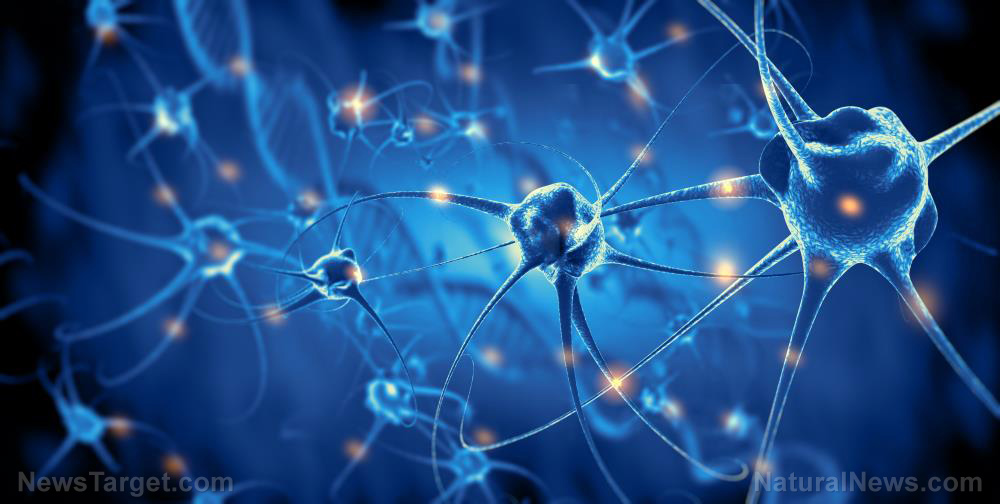Learn about brain health and nootropics to boost brain function
Can you juice up your gray matter? Study finds mild electrical stimulation improves brain function in the elderly



(Natural News) Aging is inevitable – and with it, comes memory loss. But a recent study in Nature Neuroscience presents a novel therapy to improve cognition in older adults. In their report, researchers from Boston University noted how 25 minutes of non-invasive electrical stimulation led to improvements in working memory in older adults.
“These findings are important because they not only give us new insights into the brain basis for age-related working-memory decline, but they also show us that the negative age-related changes are not unchangeable,” explained lead author Robert Reinhart, a professor at BU.
Giving your brain an “electric” boost
Working memory refers to the brain’s ability to hold and manipulate information over brief intervals. People use working memory all the time, even if they don’t know it – to recall a phone number, a conversation, and even a set of instructions.
This ability, researchers say, is central to many brain functions, including a person’s intelligence and even basic sensory processes. Psychologists and neuroscientists are interested in studying working memory, albeit for different things. While the former’s goal is to map the functions of the system, the latter wants to understand its neural underpinnings. It’s worth noting that working memory is different from long-term memory, which involves the storage of information in a more stable and durable form. But researchers have long thought that working memory is a gateway into long-term memory — repeat working memory enough, and it becomes permanent.
| Discover how to prevent and reverse heart disease (and other cardio related events) with this free ebook: Written by popular Natural News writer Vicki Batt, this book includes everything you need to know about preventing heart disease, reversing hypertension, and nurturing your cardiac health without medication. Learn More. |
While this function is very useful, it’s also sensitive to the effects of aging. Performance tests suggest that working memory improves through infancy, childhood, and adolescence, then peaks at young adulthood. From there, however, it starts to gradually decline. Studies have shown that older adults perform worse on working memory tasks than younger adults. This is where the researchers focused their study. They wanted to know if cognitive decline can be reversed.
For their study, the team enrolled over 40 healthy older adults between the ages of 60 to 76. The researchers asked the participants to perform a working memory task while they monitored the participants’ brain activities. The participants also completed tasks while a non-invasive electrical method lightly stimulated their brains. The experiment was designed to be double-blind, so neither the research team nor the participants knew which sessions involved electrical stimulation.
The researchers saw that the effect of stimulation was immediate. The participants performed well on the working memory task during sessions where they received brain stimulation. In fact, the team noted that the elderly performed just as well as a group of young adults. This positive effect lasted 50 more minutes after stimulation was stopped. While Reinhart and his team didn’t focus on how long the effects of stimulation could last, other studies have reported that it could last for several hours.
“I think it’s possible to kind of turbocharge even normal, healthy cognitive functioning, including in young people,” Reinhart added. (Related: Want better working memory? Nutrition and healthy lifestyle habits play key roles in how much you remember.)
Natural ways to improve memory
Aside from age, many factors come into play when it comes to memory loss — some of which aren’t preventable. Fortunately, natural methods are available to improve your memory. (h/t to MedicalNewsToday.com)
- Exercise. Studies have shown that exercise can improve a person’s brain health. An article published in the Journal of Exercise Rehabilitation reported that regular exercise reduces the risk of age-related cognitive decline. Brisk walking, running, swimming, and dancing are just some activities that can increase a person’s heart rate and pump more oxygen to the brain.
- Sleep. A good night’s sleep is vital for brain health, especially when it comes to forming memories. Having seven to nine hours of sleep is important so that the brain can process long- and short-term memories.
Learn more ways to improve brain health at Brain.news.
Sources include:
Click here to view full article